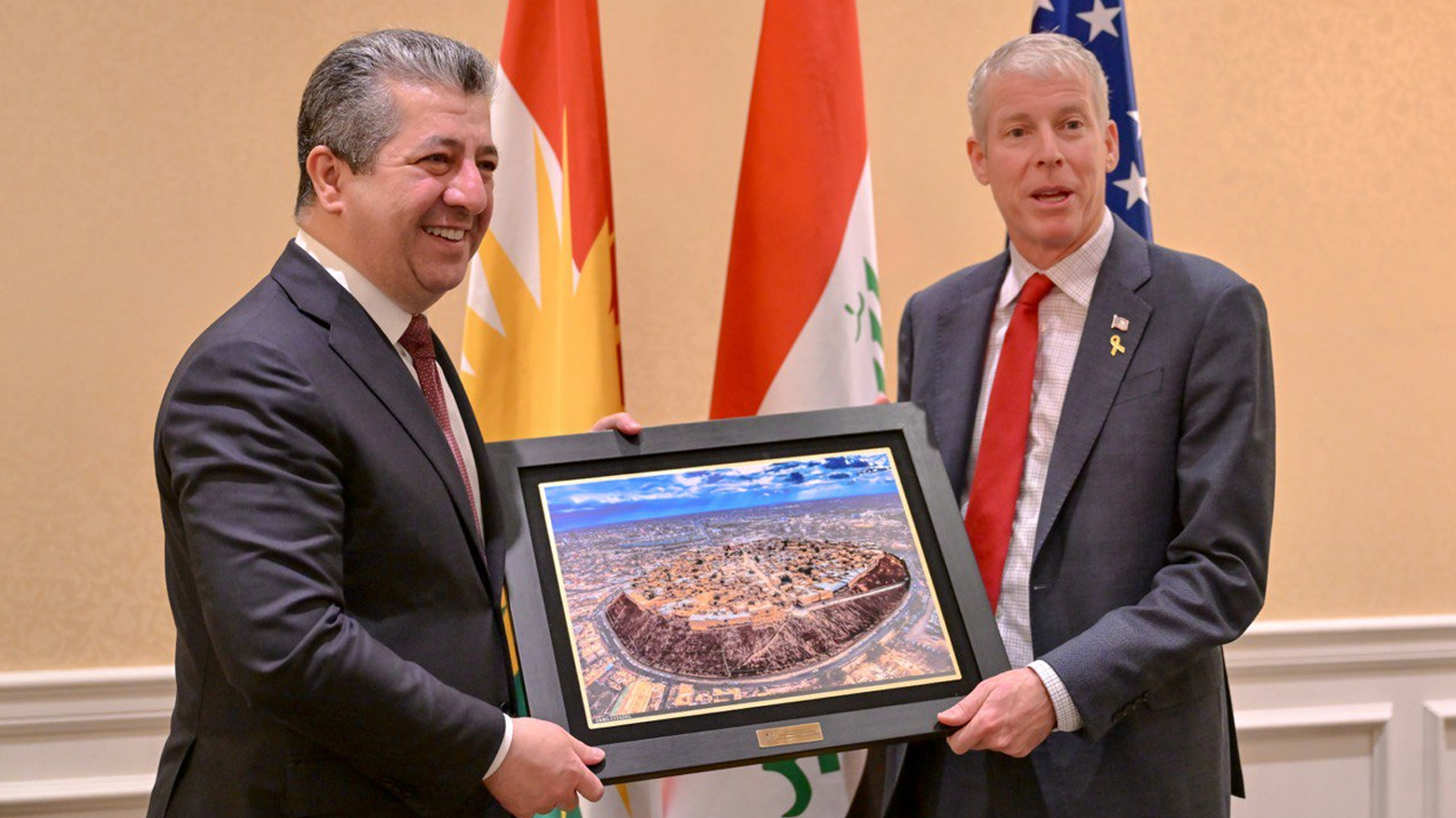U.S. Energy Secretary Praises Kurdish Oil Deal, Calls Energy Cooperation a “Win for All”
U.S. Energy Secretary Chris Wright praised the KRG's oil agreement with American companies, calling increased energy production a "win for all." The announcement coincided with a KRG spokesperson confirming oil exports would resume within 48 hours under a new deal with Baghdad.

Erbil (Kurdistan24) – U.S. Secretary of Energy Chris Wright on Tuesday hailed the Kurdistan Region’s vast oil and gas reserves as an opportunity for mutual prosperity, describing Prime Minister Masrour Barzani’s landmark energy agreement with American companies as a strategic step forward in strengthening economic ties between Erbil and Washington.
The remarks came during a press conference in Washington, where Rahim Rashidi, head of Kurdistan24’s Washington bureau and widely known as Mr. Kurd, asked the Secretary about the May visit of the Kurdistan Region’s prime minister and the $110 billion energy agreement signed with U.S. companies.
“So, great question, and all of that is true,” Wright began, confirming his meeting with Barzani in May. “Look, President Trump’s agenda—our whole administration’s agenda—is more energy makes everyone better. More energy in the world, in general, pushes costs down and allows humans to do more things. Kurdistan has great reserves. American companies are there. We would love to see more oil, more natural gas developed there. You’ve got a marketplace to get it out. So I think it’s very helpful for the people of Kurdistan, very helpful for America, and very helpful for the world.”
Wright stressed that the United States is “pro-energy” both domestically and abroad, pointing to America’s position as the largest producer of oil and natural gas globally. He criticized what he called “climate mania” in Europe, which, he argued, throttled its own production, drove up prices, and increased dependence on Russian resources. “At least they should have depended on the United States or their allies,” he remarked, underscoring Washington’s readiness to cooperate internationally in energy development.
The Secretary’s comments came on the same day that Kurdistan Regional Government (KRG) spokesperson Peshawa Hawramani announced in Erbil that the Region’s oil production had reached 234,000 barrels per day, with exports expected to resume within 48 hours under a new trilateral framework agreement with Baghdad and international companies.
Hawramani described the deal as a “significant step forward,” explaining that while part of the oil will meet domestic needs, the remainder will be handed over to Iraq’s state oil marketer SOMO for export. He added that the arrangement is temporary, lasting three months until Iraq’s 2026 federal budget is finalized, but insisted that Erbil has always sought to resolve disputes with Baghdad “in line with the constitution and law.”
He also confirmed that the KRG had transferred 120 billion Iraqi dinars from its internal revenues to Baghdad’s Ministry of Finance to ensure the disbursement of public sector salaries. “The rights of the people of Kurdistan are guaranteed by the constitution, and we will not abandon them,” Hawramani said, dismissing recent legal interpretations from Baghdad’s State Shura Council as advisory opinions rather than binding rulings.
The convergence of Wright’s remarks in Washington and Hawramani’s announcement in Erbil underscored the significance of energy cooperation at a moment when the Kurdistan Region is seeking to restore stability to its finances after nearly 18 months of halted exports.
Since March 2023, Kurdish crude exports through Turkey’s Ceyhan port have been suspended following an international arbitration ruling in favor of Baghdad, costing both sides billions of dollars in lost revenue. While Baghdad has frequently leveraged budget transfers as political pressure, Kurdish officials have accused the federal government of undermining the Region’s constitutional rights.
For the KRG, the deal with U.S. companies and the resumption of exports represent more than just economic recovery—they are a reaffirmation that the Kurdistan Region is a genuine federal partner, not a subordinate to Baghdad. For Washington, as Wright emphasized, the partnership reflects a broader energy doctrine: that more production, more cooperation, and more access benefit not only Kurdistan and the United States but the global economy as a whole.